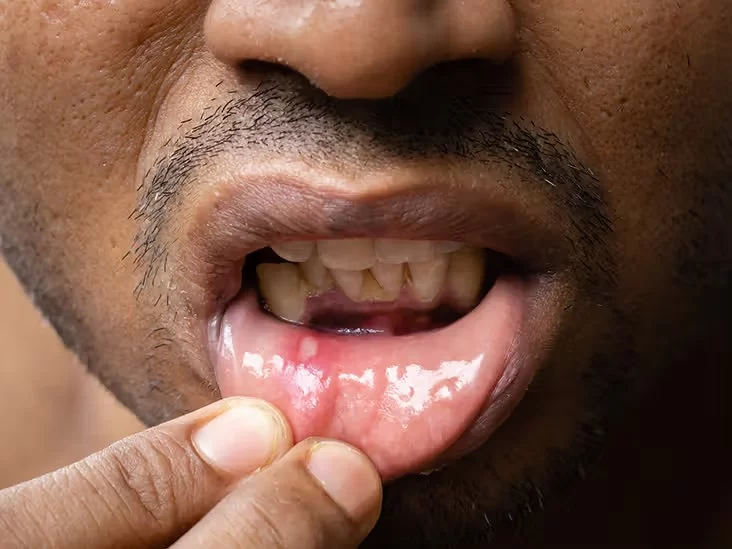
- why-recognizing-signs-of-oral-infection-matters
- common-signs-of-oral-infection-you-shouldnt-ignore
- real-case-early-symptom-missed-leads-to-root-canal
- what-causes-oral-infections-and-who-is-most-at-risk
- when-to-seek-professional-help-and-why-its-urgent
- protect-your-smile-with-dentistry-toothtruth
1. Why Recognizing Signs of Oral Infection Matters
A mild toothache or gum soreness might not seem like a big deal—but ignoring early signs of oral infection can lead to serious complications. Oral infections don’t just affect your mouth; left untreated, they can spread to other areas, compromise your immune system, or even become life-threatening.
From gum abscesses to infected root canals, being able to identify red flags early can save you pain, time, and costly procedures down the road. Knowledge truly is the first line of defense in oral health.
2. Common Signs of Oral Infection You Shouldn’t Ignore
2.1. Persistent Tooth Pain or Throbbing
Tooth pain that lingers or worsens over time is often the first indicator of a deeper issue. If over-the-counter pain relievers don’t help, it could be a sign of pulp infection or an abscessed tooth.
2.2. Swelling in Gums, Cheek, or Jaw
Localized swelling, especially when warm and tender, may indicate a buildup of pus caused by infection. In severe cases, the swelling may make it difficult to open your mouth or speak.
2.3. Bad Breath or Unpleasant Taste
Chronic bad breath (halitosis) or a foul taste that won’t go away could be due to bacterial accumulation in an infected area. This is especially common in gum infections or infected wisdom teeth.
2.4. Pus or Discharge Around Teeth or Gums
Any visible discharge or yellowish fluid from the gums is a serious red flag. This suggests that the infection has formed an abscess and requires immediate attention.
2.5. Fever or Fatigue Accompanying Oral Pain
When a dental infection causes systemic symptoms like fever, chills, or extreme tiredness, it may mean the infection has spread beyond the mouth. This is considered a dental emergency.
3. Real Case: Early Symptom Missed Leads to Root Canal
Julia, a 29-year-old graphic designer, initially ignored her sensitive molar, thinking it was due to cold weather. Over two weeks, the pain intensified, and she noticed a bitter taste in her mouth. When she finally visited the dentist, the infection had reached her tooth pulp, requiring a full root canal and crown.
“If I had gone in a week earlier, a simple filling might have solved it,” she shared during a feature interview with Dentistry Toothtruth. Her story is a common reminder: when in doubt, get it checked out.
4. What Causes Oral Infections and Who Is Most at Risk
4.1. Plaque Buildup and Poor Oral Hygiene
The most common trigger is bacteria from plaque that aren’t properly cleaned through brushing and flossing. Over time, this bacteria irritates the gums and causes decay.
4.2. Dental Procedures Without Proper Aftercare
Procedures like tooth extractions, implants, or root canals can lead to infection if aftercare instructions aren't followed. Keeping the area clean and monitoring for swelling is crucial.
4.3. Immunocompromised Individuals
People with diabetes, cancer, or autoimmune conditions are at higher risk. Even a minor infection can spread more rapidly and require more aggressive treatment.
5. When to Seek Professional Help and Why It’s Urgent
5.1. Don’t Wait for the Pain to Get Worse
If you notice more than one symptom—like swelling plus a bad taste—book a dental appointment immediately. Oral infections can move quickly and quietly.
5.2. Monitor Systemic Symptoms
Fever, nausea, and facial swelling are signs that the infection may be spreading. In rare cases, it can even reach the bloodstream, leading to a dangerous condition called sepsis.
5.3. Trust Your Gut (and Gums)
If something feels off in your mouth—even if it’s not painful—it's always safer to check in with a dentist. Early detection means easier, more affordable treatments.
6. Protect Your Smile with Dentistry Toothtruth
Your oral health is too important to ignore. If you’re experiencing signs of oral infection or just want peace of mind, Dentistry Toothtruth provides expert care and tailored solutions. From preventive cleanings to emergency treatment, their team helps you stay one step ahead of infection.
Explore their range of dental care services, expert articles, and patient-first approach to make informed decisions about your health. Because your smile deserves nothing less than total confidence.







 Southside Orthodontics - Your Colonial Heights and Chesterfield Orthodontist4.0 (274 review)
Southside Orthodontics - Your Colonial Heights and Chesterfield Orthodontist4.0 (274 review) Gentle Dental Moreno Valley4.0 (147 review)
Gentle Dental Moreno Valley4.0 (147 review) Small World Dental - Pediatric Dentist and Orthodontist4.0 (1469 review)
Small World Dental - Pediatric Dentist and Orthodontist4.0 (1469 review) Oakwood Dental Arts4.0 (470 review)
Oakwood Dental Arts4.0 (470 review) John D. Meola, DDS5.0 (4 review)
John D. Meola, DDS5.0 (4 review) Embrace Orthodontics0.0 (0 review)
Embrace Orthodontics0.0 (0 review) The Importance of Oral Health Education During Pregnancy for a Healthy Pregnancy
The Importance of Oral Health Education During Pregnancy for a Healthy Pregnancy Best Tips for Brushing Your Teeth Properly for Healthy Gums: Essential Techniques for Oral Health
Best Tips for Brushing Your Teeth Properly for Healthy Gums: Essential Techniques for Oral Health Why Skipping Dental Checkups Can Lead to Bigger Oral Health Problems
Why Skipping Dental Checkups Can Lead to Bigger Oral Health Problems Advantages of Porcelain Dental Restorations
Advantages of Porcelain Dental Restorations How Can Diabetes Cause Tooth and Gum Problems? Preventing and Managing Oral Health Issues
How Can Diabetes Cause Tooth and Gum Problems? Preventing and Managing Oral Health Issues Healthy Habits for Promoting Good Oral Health and Hygiene: Tips for a Healthy Smile
Healthy Habits for Promoting Good Oral Health and Hygiene: Tips for a Healthy Smile